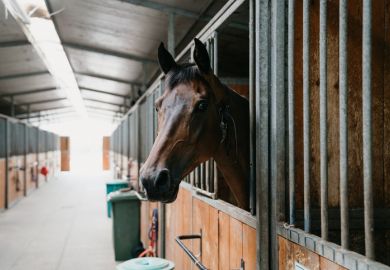Although one might think from the textbook appearance of this volume that developmental psychobiology was an already well-established discipline, the book is an attempt to mark out the territory of the specialism and to make a case for its interdisciplinary legitimacy. The first chapter discusses biology and psychology, rightly claiming that "psychology should be considered an aspect of biology rather than a separate discipline". It continues to consider historical and theoretical foundations of developmental science, systems theory, the problems of interdisciplinary synthesis and the "lure of biological explanations". This immediately sounds a note of ambivalence, because if psychology is an aspect of biology, what is wrong with biological explanations?
The problems involved in this synthesis are discussed next: genetic reductionism, culture, reification, and the naturalistic fallacy.
Then the authors take issue with modern Darwinism, quoting R. C. Lewontin's claim that "organisms do not adapt to their environments; they construct them", and stating that "evolutionary theory does not prohibit the inheritance of acquired characteristics".
The modern synthesis of Darwinian evolution and molecular genetics relies, we are told, "on a limited, outdated conception of genetics" and is "incompatible with much of what is known about development, mechanisms and phylogeny". Stephen Jay Gould is quoted repeatedly as an authority, and his book on the Burgess Shale as establishing that "human evolution is a story of contingencies - happenstance and circumstance throughout our long past".
Although the authors caution early on against relying "on the persuasiveness of an intuitively appealing argument" rather than on a "careful empirical test", they appear to have forgotten their own good advice when in the closing pages we are told that if you could perform the impossible experiment of rerunning an individual's development it would not turn out the same way second time round.
In part the reason is that the biology that goes with the psychology in this alleged interdisciplinary synthesis is holistic and organismic, "where a change in one level can promote changes in other levels that eventually feed back to promote a change in the original, initiating level". But this is emphatically not true at the most fundamental level of all - that of the gene. There is no known means - nor is there ever likely to be, despite the author's credulity for the inheritance of acquired characteristics - whereby information could flow from the organism to its genes. DNA is not a biological photocopy of the organism as a whole. However, there is a sense in which the organism is a digital copier of its genome because DNA is faithfully and exactly copied in its entirety - coding and non-coding regions, junk genes, selfish DNA and all (mutations and occasional errors apart).
But this point is never made even when the book finally gets round to genetics and development in its fifth chapter - halfway through the whole. Here, and in the following chapters on the development of behaviour and cognition, there are some serious omissions and many dubious judgements. There is no discussion whatsoever of parent-offspring conflict during development, and although parental imprinting of genes is mentioned, its revolutionary implications for our understanding of development in mammals are never considered.
The last chapter on ethology and human development makes it clear that developmental psychobiology aspires to be a nature-nurture synthesis that transcends the traditional contradiction. Whether it does so is quite another matter.
Christopher Badcock is reader in sociology at the London School of Economics.
Developmental Psychobiology: An Interdisciplinary Science
Author - George F. Michel and Celia L. Moore
ISBN - 0 262 13312 1
Publisher - MIT Press
Price - £34.95
Pages - 510
Register to continue
Why register?
- Registration is free and only takes a moment
- Once registered, you can read 3 articles a month
- Sign up for our newsletter
Subscribe
Or subscribe for unlimited access to:
- Unlimited access to news, views, insights & reviews
- Digital editions
- Digital access to THE’s university and college rankings analysis
Already registered or a current subscriber?



